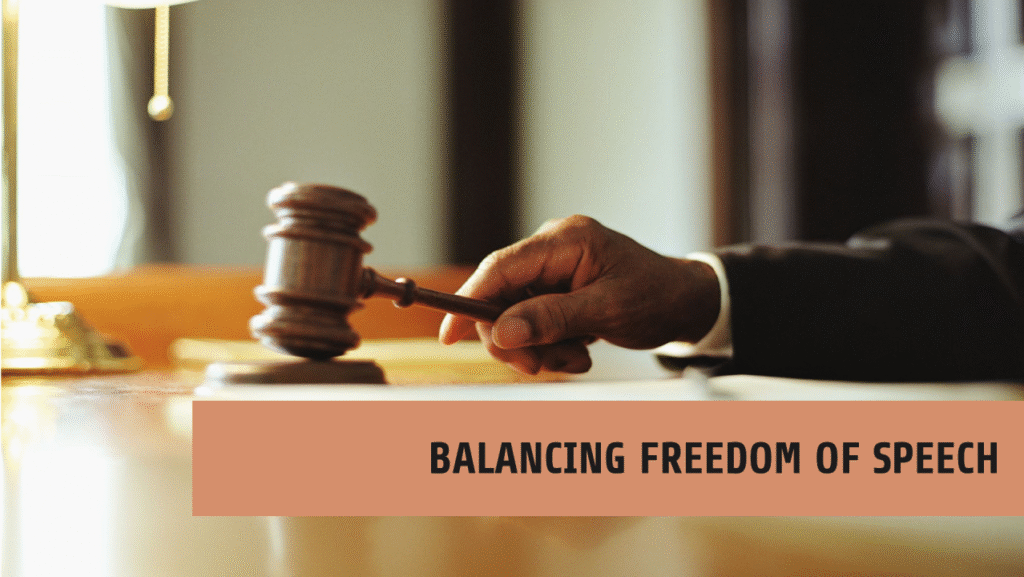Published On: 27th November, 2024
Authored by: Anuska Maurya
Vivekananda Institute of Professional Studies, GGSIPU
FACTS
India stands as one of the nations that has legalised homosexuality and acknowledged the rights of the LGBTQ+ community. However, this progress has not been achieved without significant challenges. The journey has been marked by numerous obstacles, particularly due to the notorious Section 377 of the Indian Penal Code, which criminalises homosexual acts. This section has its origins in the Buggery Act of 1533, a law from 16th century England, which classified homosexual acts, bestiality, and sodomy as unnatural offences. The legal battle against this section has been prolonged, beginning with the NGO “AIDS Bhedbhav Virodhi Abhiyan” (ABVA), which sought to decriminalise homosexuality after witnessing same-sex relationships in Tihar Jail. They were denied permission to distribute condoms in the jail for the safety of the inmates from HIV, later their petition was dismissed in 2001. In 2009, the Naz Foundation filed a Special Leave Petition, leading to the landmark case Naz Foundation v. Government of NCT, where the Delhi High Court decriminalised consensual homosexual acts among adults, asserting that Section 377 violated fundamental rights to equality, privacy, and personal liberty as enshrined in the Indian Constitution. However, this ruling was overturned in 2013 by the Supreme Court in Suresh Kumar Koushal v. Naz Foundation, which upheld the constitutionality of Section 377, arguing that only Parliament had the authority to amend the law and dismissing the significance of the LGBTQ+ community as a “minuscule fraction” of the population. Ultimately, the pivotal judgement in Navtej Singh Johar v. Union of India marked a significant turning point in this legal saga.
ISSUES RAISED
In the case of Navtej Singh Johar v. Union of India (2018), several pivotal issues were brought to the forefront:
- The constitutionality of Section 377 was scrutinised to determine if it infringed upon fundamental rights, specifically the rights to equality (Article 14), non-discrimination (Article 15), freedom of expression (Article 19), and the rights to privacy and dignity (Article 21).
- The right to privacy was examined in light of the significant Puttaswamy judgement (2017), questioning whether the criminalisation of consensual same-sex relationships constituted a violation of personal autonomy and privacy rights.
- The principles of equality and non-discrimination were also considered, particularly whether the criminalisation of homosexuality constituted discrimination against individuals based on their sexual orientation, thereby compromising equal protection under the law.
- Furthermore, the case explored the repercussions of Section 377 on the LGBTQ+ community, focusing on the mental, emotional, and social ramifications, including experiences of stigma and marginalisation.
- Lastly, the discussion included an analysis of India’s commitments under international human rights treaties and norms, assessing whether these obligations necessitated the decriminalisation of consensual same-sex relationships.
ARGUMENTS
- Petitioners
- The petitioners and intervenors argue that homosexuality, bisexuality, and other sexual orientations are natural expressions of personal choice and mutual consent between legally eligible individuals. These orientations should not be seen as illnesses but as valid variations of human expression. Criminalising them violates individual dignity and autonomy, undermines gender identity, and infringes on the right to privacy under Article 21 of the Constitution. Such actions contradict the values of freedom and harm the authentic expression of human identity.
- The development of individual identity and the pursuit of meaningful relationships, such as live-in partnerships, have become elusive, stifling fundamental desires and infringing on rights under Article 19(1)(a) of the Constitution. The American Psychological Association asserts that sexual orientation is a natural aspect of human existence, with same-sex and opposite-sex attractions being inherently equal, though same-sex attraction occurs less frequently.
- The petitioners argue that Section 377 perpetuates discrimination and abuse against the LGBTQ+ community, rooted in outdated Victorian-era values. This law creates fear, and alienation, and deprives them of constitutional rights, worsening their victimisation instead of promoting societal understanding, thus violating the fundamental principle of liberty.
- Sexual orientation is a key aspect of privacy and individual identity. Protecting both is essential for personal dignity and freedom. In light of the Puttaswamy decision, Section 377 must be struck down as it violates Articles 14, 19, and 21 of the Constitution, infringing on the right to privacy and personal choice.
- Section 377 violates Article 14 of the Constitution due to its vagueness. The term “carnal intercourse against the order of nature” lacks a clear definition in the IPC or other laws, leading to an arbitrary distinction between natural and unnatural sex, even when consensual.
- Respondent
- Section 377 was enacted to address concerns about unnatural sex and preserve societal morals. They argued that the law served a legitimate state interest in regulating behaviour.
- They contended that the Supreme Court’s 2013 decision in Suresh Kumar Koushal should be upheld, maintaining that only Parliament could change the law, not the judiciary.
- The respondents argued that Section 377 reflected prevailing social norms and values. They suggested that any change should be driven by a wider societal consensus and legislative action rather than judicial intervention.
- They expressed concerns that decriminalizing homosexual acts could have broader implications for public morality and traditional family structures, arguing that Section 377 helped uphold societal norms.
- The respondents claimed that India’s position was not out of step with other jurisdictions and that moral and cultural differences should be considered in the context of the country’s legal framework.
JUDGEMENT
In a landmark decision, a five-judge bench of the Supreme Court of India, led by Chief Justice of India, Justice Deepak Misra, delivered a significant judgement that has far-reaching implications for the rights of individuals in the country. The court’s ruling was characterised by the issuance of four distinct opinions, each reflecting the diverse perspectives of the judges involved. This judgement notably resulted in the partial invalidation of section 377 of the Indian Penal Code (IPC). Furthermore, the court’s decision effectively overturned the previous ruling established in the case of Suresh Koushal v. Naz Foundation in 2013, which upheld the constitutionality of section 377. The court emphasised that the size of the LGBTQIA+ community is irrelevant; they possess the same right to privacy as anyone else, encompassing personal autonomy and sexual orientation. While their partner choices may differ from the norm, this should not lead to any form of punishment. Section 377 infringes upon their human dignity and personal freedoms, thereby breaching their right to privacy as guaranteed by Article 21. The concepts of public order, decency, and morality can justify reasonable restrictions on the fundamental right to expression as stated in Article 19(1)(a). When members of this community express affection publicly, it does not disrupt public order or moral values, provided their actions are decent and not offensive to the general public. However, Section 377 is unconstitutional because it does not adhere to the criteria of proportionality and infringes upon the fundamental right to expression of the LGBTQIA+ community. The Constitution promotes liberal values, which means that the right to choose cannot be entirely unrestricted. As a result, certain limitations have been placed on this right. However, the decision to select a partner for sexual relationships is a personal matter that should remain free from restrictions. In contrast, Section 377 of the Indian Penal Code limits the ability of this community to choose their sexual partners, making it an unreasonable and arbitrary law.
The Supreme Court overturned the ruling in Suresh Koushal and Ors. v. Naz Foundation and Ors., ruling that Section 377 is partially invalid due to its violations of Articles 14, 15, 19, and 21 of the Indian Constitution. Additionally, it said that only non-consensual sexual actions against adults, sexual acts against minors, and even bestiality would be punished under Section 377.
REASONING
- The Supreme Court in Navtej Singh Johar v. Union of India (2018) expanded the right to privacy by affirming that it encompasses sexual orientation. The Court highlighted that criminalising consensual same-sex relations violated this right, as individuals should be free to make personal choices without state interference or societal stigma.
- The Court found Section 377 unconstitutional under Articles 14 and 15 of the Constitution, ruling it discriminatory against LGBTQ+ individuals. The law unfairly targeted and marginalised this community, denying them equal protection and the right to live without discrimination based on sexual orientation.
- The Court emphasised that personal autonomy is a fundamental right, which includes the freedom to make choices about one’s sexual orientation and intimate relationships. It asserted that criminalising consensual same-sex relationships infringes on this autonomy, as individuals should be free from legal and societal constraints when making deeply personal decisions, thus safeguarding their dignity and personal freedom.
- The Supreme Court invalidated Section 377 insofar as it criminalised consensual same-sex relations between adults, declaring it unconstitutional. The Court ruled that the law unjustly infringed upon individuals’ rights to privacy, equality, and personal autonomy. It held that such criminalization was incompatible with fundamental rights guaranteed under the Constitution and should be read down accordingly.
- The Court acknowledged the evolving understanding of human rights and rejected the earlier ruling’s stance that only Parliament could amend the law. This decision reaffirmed judicial responsibility in upholding fundamental rights against discriminatory statutes.
CONCLUSION
The Navtej Singh Johar v. Union of India judgement had a profound impact on Indian society, marking a significant cultural and legal shift. By decriminalising same-sex relations, the Supreme Court empowered the LGBTQ+ community, granting them greater social acceptance and legal protection. This ruling challenged deeply rooted societal stigmas around homosexuality, fostering a more inclusive environment for sexual minorities. In the long run, the decision serves as a foundation for broader reforms in civil rights, paving the way for legal recognition of same-sex relationships, anti-discrimination laws, and greater public dialogue on gender and sexual diversity. The judgement not only gave LGBTQ+ individuals the freedom to live openly but also validated their dignity, altering the lives of millions who previously lived in fear of persecution. As society continues to evolve, this landmark decision will remain a cornerstone for building a more equitable and just society for all.
BIBLIOGRAPHY
- “Navtej Singh Johar v. UOI: decriminalized homosexuality” case study: Ipleaders https://blog.ipleaders.in/navtej-singh-johar-v-uoi-judgment-which-decriminalized-homosexuality/#Navtej_Singh_Johar_and_ors_v_Union_of_India_and_ors_2018
- Navtej Singh Johar V. UOI and others on 6 September 2018: Indiankanoon https://indiankanoon.org/doc/168671544/
- Navtej Singh Johar & Ors vs. Union Of India 2018 Case study: LegalFly https://legalfly.in/navtej-singh-johar-v-union-of-india-2018/




